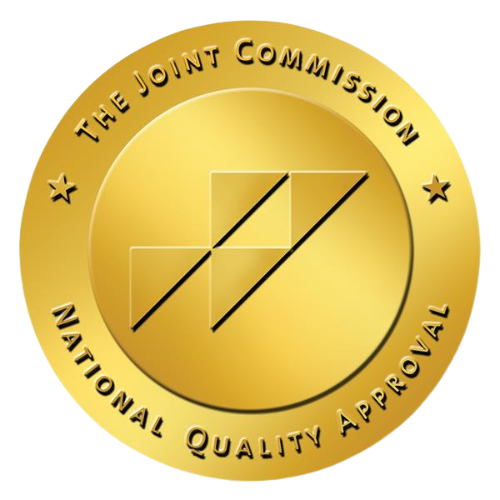{“main-title”:{“component”:”hc_title”,”id”:”main-title”,”title”:”Considering being a travel healthcare professional?”,”subtitle”:””,”title_content”:{“component”:”hc_title_empty”,”id”:”title-empty”}},”section_5ZtkF”:{“component”:”hc_section”,”id”:”section_5ZtkF”,”section_width”:””,”animation”:””,”animation_time”:””,”timeline_animation”:””,”timeline_delay”:””,”timeline_order”:””,”vertical_row”:””,”box_middle”:””,”css_classes”:””,”custom_css_classes”:””,”custom_css_styles”:””,”section_content”:[{“component”:”hc_column”,”id”:”column_5ZtkF”,”column_width”:”col-md-12″,”animation”:””,”animation_time”:””,”timeline_animation”:””,”timeline_delay”:””,”timeline_order”:””,”css_classes”:””,”custom_css_classes”:””,”custom_css_styles”:””,”main_content”:[{“component”:”hc_title_tag”,”id”:”5ZtkF”,”css_classes”:”text-xl “,”custom_css_classes”:””,”custom_css_styles”:””,”text”:”Considering being a travel healthcare professional?”,”tag”:”h4″},{“component”:”hc_space”,”id”:”ElH2F”,”css_classes”:””,”custom_css_classes”:””,”custom_css_styles”:””,”size”:”m”,”height”:””},{“component”:”hc_pt_post_informations”,”id”:”uRG6Z”,”css_classes”:””,”custom_css_classes”:””,”custom_css_styles”:””,”post_type_slug”:””,”position”:”left”,”date”:true,”categories”:true,”author”:true,”share”:true},{“component”:”hc_space”,”id”:”W6fY0″,”css_classes”:””,”custom_css_classes”:””,”custom_css_styles”:””,”size”:””,”height”:””},{“component”:”hc_image_box”,”id”:”6Uhfm”,”css_classes”:””,”custom_css_classes”:””,”custom_css_styles”:””,”image”:”https://blumedstaff.com/wp-content/uploads/2021/08/hush-naidoo-pA0uoltkwao-unsplash-1024×683.jpg|1707|2560|999956012″,”link_type”:”classic”,”lightbox_animation”:””,”caption”:””,”inner_caption”:false,”new_window”:false,”link”:””,”link_content”:[],”lightbox_size”:””,”scrollbox”:false,”icon”:””,”style”:””,”icon_position”:””,”image_animation”:””,”icon_animation”:””,”thumb_size”:”large”,”icon_hidden”:true,”img_box_inner_caption”:true,”caption_img_box”:””,”alt”:””},{“component”:”hc_space”,”id”:”dsC4L”,”css_classes”:””,”custom_css_classes”:””,”custom_css_styles”:””,”size”:””,”height”:””},{“component”:”hc_collapse”,”id”:”Sx2FA”,”css_classes”:””,”custom_css_classes”:””,”custom_css_styles”:””,”content”:[{“component”:”hc_text_block”,”id”:”KiZro”,”css_classes”:””,”custom_css_classes”:””,”custom_css_styles”:””,”content”:”So you want to be a traveler?\n \nConsidering being a travel healthcare professional, but afraid it’s not for you?\n \nThe travel healthcare professional lifestyle is a big change for many and can be scary. Many healthcare professionals dream of working in other places and seeing the country but don’t take the leap and instead put being a healthcare traveler on the “someday” shelf. While the switch can be scary, you might be surprised by how much you’ll actually like it. Not only can it help your career leapfrog over your peers who stay in the same job, it can awaken that spirit of adventure! Becoming a healthcare traveler can teach you how other facilities manage patient care and enrich your knowledge making you a better healthcare professional. At the same time you’ll experience new places, foods, accents, etc. From the simple of differences of saying pop, soda or Coke when requesting a sugary carbonated beverage, or the use of “y’all” or “you betcha”. Visiting different states and regions can open your eyes to new things and different ways to look at life. West coast chill or NY fast or practical mid-west, the country is varied and unique. Being a healthcare traveler gives you an opportunity to see it all while making great money. \n \nHere are 5 reasons to be a travel healthcare professional:\n \n#1: Travel for free\n \nThe most popular reason for becoming a travel healthcare professional is the opportunity to explore new places without having to pay for it. Live and working in a place gives you the feeling of being a local and not a tourist, and truly getting to see what a place is like. It’s a way to immerse yourself in another part of the country without the commitment. Trying before buying as it were. Unlike a vacation, you have time to explore and really see what there is to see, without the pressure to see everything in a weekend or week or having to spend your hard-earned money to rent a hotel and pay for a flight. Another benefit to the travel lifestyle is making new friends and creating memories. \n \n#2: Great Money\n \nHave a lot of student loans to pay off? Being a healthcare traveler on average tends to pay more than staff healthcare professional positions. According to Glassdoor, the average staff healthcare professional salary is about $65.6k while the average travel healthcare professional salary is about $76.7k. It’s a great way to make some more money to put towards your loans.\n \nIn fact, the average hourly rate for a registered healthcare professional ranges from $23.09 – $41.03. Based on a 36-hour work week that’s $831.24 – $1,477.08 per week. At Blu Medstaff, the average salary for a travel healthcare professional is over $50 per hour which equals over $1,800 a week based on a 36-hour work week.\n \nWhy do travel healthcare professionals make more? In most locations, medical employers are hiring travel healthcare professionals because they desperately need extra help. Often, they are hiring for underserved areas and extra compensation is provided to healthcare professionals to encourage them to come work in the area. This extra compensation can come in the form of salary increase or sign-on bonuses and extra benefits on top of compensation. These can include things like travel and housing reimbursements or meal stipends. \n \n#3: Find your best fit!\n \nIf you’re not sure what kind of healthcare facility would be best you to work in as a healthcare professional, travel nursing is a great way to experience various clinical environments.\n \nHospitals: The most diverse setting you can explore. Hospitals vary in size, staffing levels, patient acuity and bed occupancy. Size matters so does trauma level. Find out if you prefer teaching hospitals, Level I trauma centers, medium sized hospitals, or small rural hospitals. What speed suits you best. What level of acuity, etc. \n \nSurgery and Outpatient Care Centers: Larger focus on facilitation of patient care service and providing support with decision-making and patient education\n \nUrgent Care Centers: Faster more variable environment that is one of the fastest growing segments in healthcare\n \nLong Term Care: Probably the fastest growing segment for travelers, taking care of geriatric patients, includes Skilled Nursing Facilities, and Hospice. \n \nEvery healthcare organization operates a little different and has a different culture. Through travel, you can gain experience with different protocols and test out different patient ratios to help figure out what you really like before you commit to a full-time role as a healthcare professional. That can help inform your future career choices and help you find the perfect fit for you.\n \n#4: Positive Change\n \nTravel gets you out of the rut and forces you to embrace change in a positive way. Our brains thrive when challenged, being a healthcare traveler forces us to learn and grow. Travel has also been shown to be good for your mental health. Not only has it been shown to increase creativity and boost happiness and satisfaction, it’s also a chance to reinvent yourself in a completely new situation. What did you eat for dinner last Tuesday? Do you remember your commute to work this morning? Travelers spend more time in the moment and have less of the blah days. We’re not saying that every day is great, but that you will be much more aware of what you are doing and probably much more present with your choices. \n \n#5: Control of Your Schedule\n \nLastly, being a healthcare traveler gives you an empowering freedom to decide your own schedule. Do you have to request of months before for a vacation or time off, and hope it gets approved? As a travel healthcare professional, you are in control of when you work and for how long. Assignments can range from 2 to 13 weeks depending on the healthcare need. Crisis positions tend to pay much higher with shorter spans, while traditional 13 week assignments allow you better or more comfortable accommodations. While you’re expected to be available during the contract, you can schedule time off between contracts, and define when you work and when you don’t. Travel healthcare professionals have the unique freedom to take unlimited time off between each job, and/or switch travel locations across the country multiple times a year.\n \nCan you imagine setting your own schedule to working three months at a time in places like New York, Miami, Atlanta, Charlotte, Minneapolis, Seattle, San Francisco, St. Louis, Chicago, LA, Portland, Dallas, Phoenix, Baton Rouge, or New Orleans? If you like it most times you can extend for longer, whether a few weeks or 13. You can also schedule time off between contracts and or take off large blocks during the holiday’s etc. This can absolutely be your reality as a travel healthcare professional.\n \nOften, many facilities are also very accommodating in terms of schedule. They are willing to negotiate a working schedule that you like to make sure you’re the happiest you can be at their facility. You can choose to work only days or nights if you prefer and take off weekends or certain weekdays depending on your preference.\n \nThere are several benefits Blu Medstaff Healthcare professionals are offered as listed in every job post:\n \nHousing: Generous weekly stipends for housing and utilities expenses.\nTravel: Up to $600 reimbursement for travel to your assignment.\nMedical: Major medical, dental and vision plans available from your first day of work.\nPayroll: Weekly deposits direct to your bank account.\nProfessional: Reimbursements for state licensing expenses for any job taken through Blu Medstaff in that state.\n \nWe hope this is helpful for you and can help show you that becoming a healthcare traveler is a chance that is worth taking. If you’re still unsure if being a healthcare traveler is for you and want to talk to someone, connect with one of our Blu Medstaff Navigators!\n \nIf you’re ready to start exploring being a healthcare traveler, start searching for your first assignment on Blu Medstaff today.\n \nGood luck!\n\n”}],”button_text”:”Read more”,”button_open_text”:”Close”,”position”:”bottom”,”alignment”:”center”,”height”:”240″,”time”:””}]}],”section_settings”:””},”scripts”:{“lightbox”:”jquery.magnific-popup.min.js”,”components”:”jquery.tab-accordion.js”},”css”:{“lightbox”:”scripts/magnific-popup.css”,”components”:”css/components.css”},”css_page”:””,”template_setting”:{“settings”:{“id”:”settings”}},”template_setting_top”:{},”page_setting”:{“settings”:[“lock-mode-off”]},”post_type_setting”:{“settings”:{“image”:”https://blumedstaff.com/wp-content/uploads/2021/08/annie-spratt-qyAka7W5uMY-unsplash-1024×809.jpg|2022|2560|999956208″,”excerpt”:”So you want to be a traveler?\n \nConsidering being a travel healthcare professional, but afraid it’s not for you?\n \nThe travel healthcare professional lifestyle is a big change for many and can be scary. Many healthcare professionals dream of working in other places and seeing the country but don’t take the leap and instead put being a healthcare traveler on the “someday” shelf. While the switch can be scary, you might be surprised by how much you’ll actually like it. Not only can it help your career leapfrog over your peers who stay in the same job, it can awaken that spirit of adventure! Becoming a healthcare traveler can teach you how other facilities manage patient care and enrich your knowledge making you a better healthcare professional. At the same time you’ll experience new places, foods, accents, etc. From the simple of differences of saying pop, soda or Coke when requesting a sugary carbonated beverage, or the use of “y’all” or “you betcha”. Visiting different states and regions can open your eyes to new things and different ways to look at life. West coast chill or NY fast or practical mid-west, the country is varied and unique. Being a healthcare traveler gives you an opportunity to see it all while making great money. \n \nHere are 5 reasons to be a travel healthcare professional:\n \n#1: Travel for free\n \nThe most popular reason for becoming a travel healthcare professional is the opportunity to explore new places without having to pay for it. Live and working in a place gives you the feeling of being a local and not a tourist, and truly getting to see what a place is like. It’s a way to immerse yourself in another part of the country without the commitment. Trying before buying as it were. Unlike a vacation, you have time to explore and really see what there is to see, without the pressure to see everything in a weekend or week or having to spend your hard-earned money to rent a hotel and pay for a flight. Another benefit to the travel lifestyle is making new friends and creating memories. \n \n#2: Great Money\n \nHave a lot of student loans to pay off? Being a healthcare traveler on average tends to pay more than staff healthcare professional positions. According to Glassdoor, the average staff healthcare professional salary is about $65.6k while the average travel healthcare professional salary is about $76.7k. It’s a great way to make some more money to put towards your loans.\n \nIn fact, the average hourly rate for a registered healthcare professional ranges from $23.09 – $41.03. Based on a 36-hour work week that’s $831.24 – $1,477.08 per week. At Blu Medstaff, the average salary for a travel healthcare professional is over $50 per hour which equals over $1,800 a week based on a 36-hour work week.\n \nWhy do travel healthcare professionals make more? In most locations, medical employers are hiring travel healthcare professionals because they desperately need extra help. Often, they are hiring for underserved areas and extra compensation is provided to healthcare professionals to encourage them to come work in the area. This extra compensation can come in the form of salary increase or sign-on bonuses and extra benefits on top of compensation. These can include things like travel and housing reimbursements or meal stipends. \n \n#3: Find your best fit!\n \nIf you’re not sure what kind of healthcare facility would be best you to work in as a healthcare professional, travel nursing is a great way to experience various clinical environments.\n \nHospitals: The most diverse setting you can explore. Hospitals vary in size, staffing levels, patient acuity and bed occupancy. Size matters so does trauma level. Find out if you prefer teaching hospitals, Level I trauma centers, medium sized hospitals, or small rural hospitals. What speed suits you best. What level of acuity, etc. \n \nSurgery and Outpatient Care Centers: Larger focus on facilitation of patient care service and providing support with decision-making and patient education\n \nUrgent Care Centers: Faster more variable environment that is one of the fastest growing segments in healthcare\n \nLong Term Care: Probably the fastest growing segment for travelers, taking care of geriatric patients, includes Skilled Nursing Facilities, and Hospice. \n \nEvery healthcare organization operates a little different and has a different culture. Through travel, you can gain experience with different protocols and test out different patient ratios to help figure out what you really like before you commit to a full-time role as a healthcare professional. That can help inform your future career choices and help you find the perfect fit for you.\n \n#4: Positive Change\n \nTravel gets you out of the rut and forces you to embrace change in a positive way. Our brains thrive when challenged, being a healthcare traveler forces us to learn and grow. Travel has also been shown to be good for your mental health. Not only has it been shown to increase creativity and boost happiness and satisfaction, it’s also a chance to reinvent yourself in a completely new situation. What did you eat for dinner last Tuesday? Do you remember your commute to work this morning? Travelers spend more time in the moment and have less of the blah days. We’re not saying that every day is great, but that you will be much more aware of what you are doing and probably much more present with your choices. \n \n#5: Control of Your Schedule\n \nLastly, being a healthcare traveler gives you an empowering freedom to decide your own schedule. Do you have to request of months before for a vacation or time off, and hope it gets approved? As a travel healthcare professional, you are in control of when you work and for how long. Assignments can range from 2 to 13 weeks depending on the healthcare need. Crisis positions tend to pay much higher with shorter spans, while traditional 13 week assignments allow you better or more comfortable accommodations. While you’re expected to be available during the contract, you can schedule time off between contracts, and define when you work and when you don’t. Travel healthcare professionals have the unique freedom to take unlimited time off between each job, and/or switch travel locations across the country multiple times a year.\n \nCan you imagine setting your own schedule to working three months at a time in places like New York, Miami, Atlanta, Charlotte, Minneapolis, Seattle, San Francisco, St. Louis, Chicago, LA, Portland, Dallas, Phoenix, Baton Rouge, or New Orleans? If you like it most times you can extend for longer, whether a few weeks or 13. You can also schedule time off between contracts and or take off large blocks during the holiday’s etc. This can absolutely be your reality as a travel healthcare professional.\n \nOften, many facilities are also very accommodating in terms of schedule. They are willing to negotiate a working schedule that you like to make sure you’re the happiest you can be at their facility. You can choose to work only days or nights if you prefer and take off weekends or certain weekdays depending on your preference.\n \nThere are several benefits Blu Medstaff Healthcare professionals are offered as listed in every job post:\n \nHousing: Generous weekly stipends for housing and utilities expenses.\nTravel: Up to $600 reimbursement for travel to your assignment.\nMedical: Major medical, dental and vision plans available from your first day of work.\nPayroll: Weekly deposits direct to your bank account.\nProfessional: Reimbursements for state licensing expenses for any job taken through Blu Medstaff in that state.\n \nWe hope this is helpful for you and can help show you that becoming a healthcare traveler is a chance that is worth taking. If you’re still unsure if being a healthcare traveler is for you and want to talk to someone, connect with one of our Blu Medstaff Navigators!\n \nIf you’re ready to start exploring being a healthcare traveler, start searching for your first assignment on Blu Medstaff today.\n \nGood luck!”,”extra_1″:””,”extra_2″:””,”icon”:{“icon”:””,”icon_style”:””,”icon_image”:””}}}}

Your Guide to Healthcare Traveling
Becoming a healthcare traveler can be an enriching experience that offers you the chance to see new places, meet new people, and develop skills in unique and exciting environments. So, if you’re considering starting your travel journey, don’t hesitate to take that first step. Use the tips and advice in this guide to help you prepare for your adventure, make the most of your experiences, and share the guide with others!







